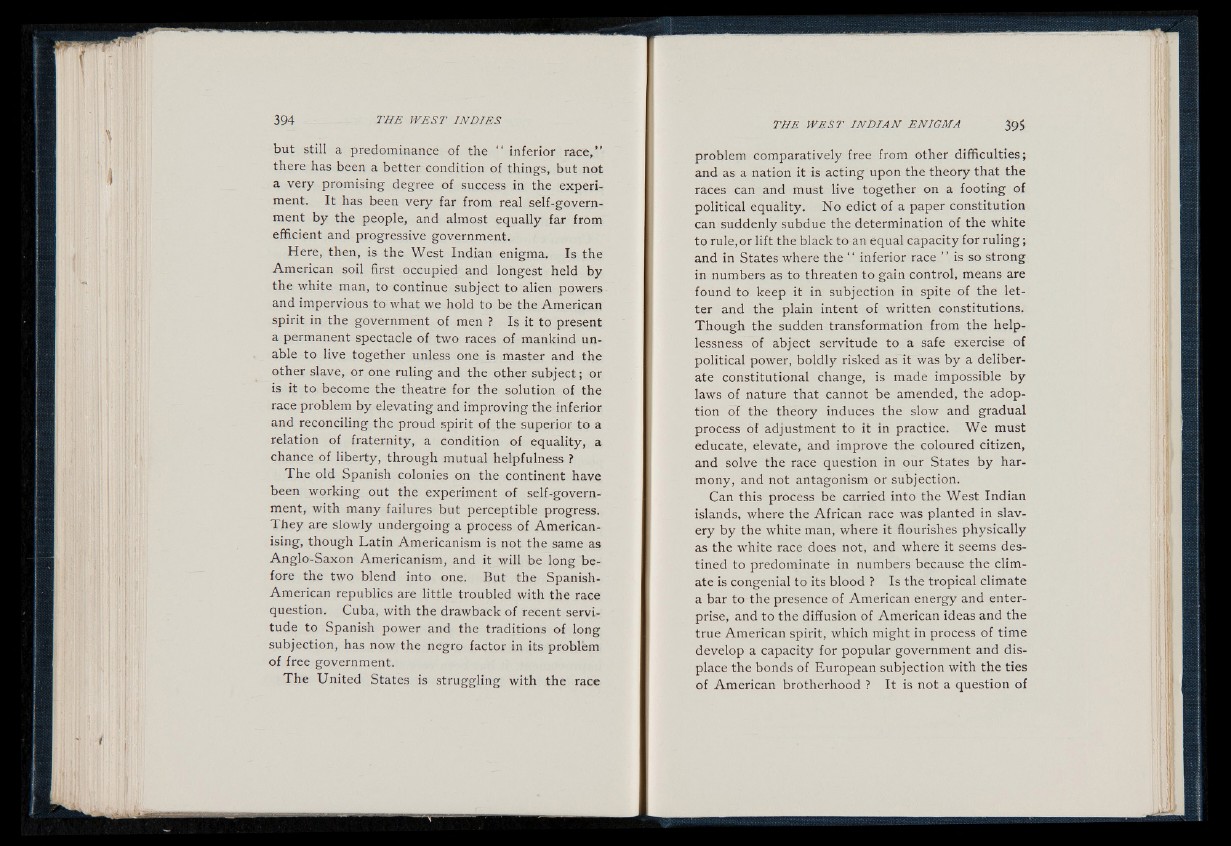
but still a predominance of the “ inferior race,”
there has been a better condition of things, but not
a very promising degree of success in the experiment.
It has been very far from real self-government
by the people, and almost equally far from
efficient and progressive government.
Here, then, is the West Indian enigma. Is the
American soil first occupied and longest held by
the white man, to continue subject to alien powers
and impervious to what we hold to be the American
spirit in the government of men ? Is it to present
a permanent spectacle of two races of mankind unable
to live together unless one is master and the
other slave, or one ruling and the other subject; or
is it to become the theatre for the solution of the
race problem by elevating and improving the inferior
and reconciling the proud spirit of the superior to a
relation of fraternity, a condition of equality, a
chance of liberty, through mutual helpfulness ?
The old Spanish colonies on the continent have
been working out the experiment of self-government,
with many failures but perceptible progress.
T h e y are slowly undergoing a process of Americanising,
though Latin Americanism is not the same as
Anglo-Saxon Americanism, and it will be long before
the two blend into one. But the Spanish-
American republics are little troubled with the race
question. Cuba, with the drawback of recent servitude
to Spanish power and the traditions of long
subjection, has now the negro factor in its problem
of free government.
T he United States is struggling with the race
problem comparatively free from other difficulties;
and as a nation it is acting upon the theory that the
races can and must live together on a footing of
political equality. No edict of a paper constitution
can suddenly subdue the determination of the white
to rule, or lift the black to an equal capacity for ruling ;
and in States where the ‘ ‘ inferior race ” is so strong
in numbers as to threaten to gain control, means are
found to keep it in subjection in spite of the le tter
and the plain intent of written constitutions.
Though the sudden transformation from the helplessness
of abject servitude to a safe exercise of
political power, boldly risked as it was by a deliberate
constitutional change, is made impossible by
laws of nature that cannot be amended, the adoption
of the theory induces the slow and gradual
process of adjustment to it in practice. We must
educate, elevate, and improve the coloured citizen,
and solve the race question in our States by harmony,
and not antagonism or subjection.
Can this process be carried into the West Indian
islands, where the African race was planted in slavery
by the white man, where it flourishes physically
as the white race does not, and where it seems destined
to predominate in numbers because the climate
is congenial to its blood ? Is the tropical climate
a bar to the presence of American energy and enterprise,
and to the diffusion of American ideas and the
true American spirit, which might in process of time
develop a capacity for popular government and displace
the bonds of European subjection with the ties
of American brotherhood ? It is not a question of